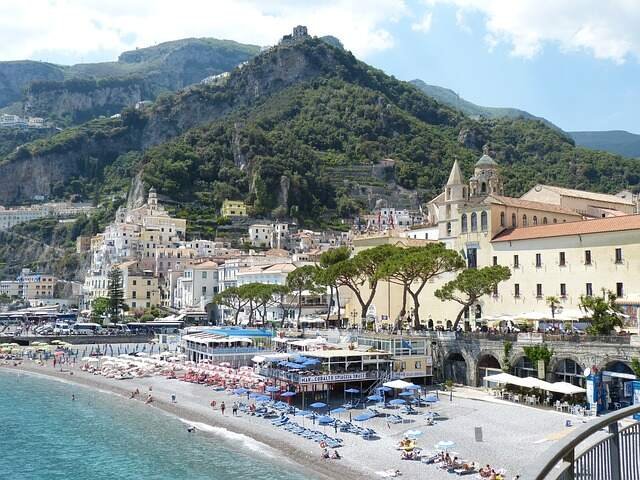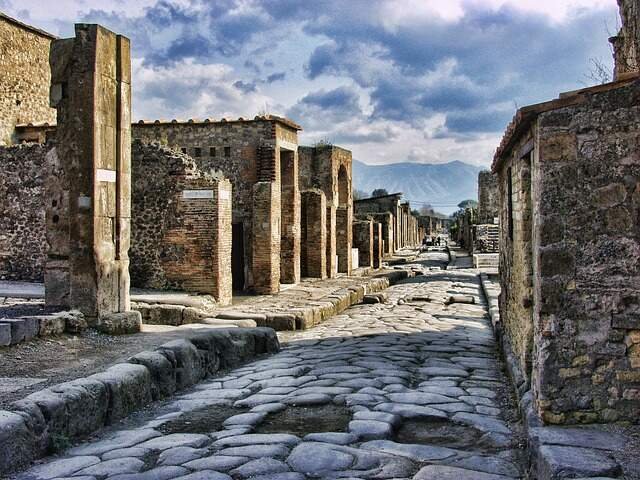- Introduction to Seasonal Jobs in Italy
- Types of Seasonal Jobs Available in Italy
- Best Places in Italy for Seasonal Work
- How to Find Seasonal Job Listings
- Preparing Your CV and Cover Letter
- Understanding Work Permits and Regulations
- Interview Tips for Seasonal Jobs
- Making the Most of Your Seasonal Job Experience
- Conclusion: Your Next Steps
Introduction to Seasonal Jobs in Italy
Seasonal jobs in Italy are temporary employment opportunities that arise during specific periods of the year, primarily aligned with seasonal demand. These positions offer crucial support to various sectors, notably tourism, agriculture, and hospitality, which experience fluctuating needs based on the time of year. For instance, the influx of tourists during the summer months generates a high demand for roles within hotels, restaurants, and entertainment venues. Simultaneously, the agricultural sector sees a peak in labor requirements during the harvest season, necessitating additional workforce support.

One of the primary attractions of seasonal jobs in Italy is their accessibility. Both locals and expatriates find these opportunities appealing due to the potential for flexible working hours and the chance to earn income during peak seasons. For individuals seeking to immerse themselves in Italian culture, these jobs can provide valuable experiences, enabling workers to interact with diverse groups of people, learn new skills, and explore different regions of the country. Moreover, these roles often do not require extensive qualifications or prior experience, making them an excellent entry point for those looking to begin their careers or seek temporary work abroad.
In addition to providing immediate employment opportunities, seasonal jobs contribute significantly to the Italian economy. By filling labor shortages in critical sectors, they help to maintain productivity during peak periods. Furthermore, these positions allow businesses to remain competitive by ensuring that they can adequately meet customer demand. As such, seasonal jobs in Italy not only serve as a pathway for workers seeking income but also bolster the overall economic landscape, illustrating their importance in the country’s labor market.
Types of Seasonal Jobs Available in Italy
Italy offers a diverse range of seasonal job opportunities catering to various sectors, particularly tourism, agriculture, winter sports, and summer beach resorts. As one of the most visited countries, the tourism industry in Italy is a significant contributor to seasonal employment. Positions such as tour guides, hotel staff, and restaurant workers are commonly sought after. Tour guides, in particular, play a crucial role in enhancing the visitor experience, providing insights into Italy’s rich cultural heritage and historical landmarks.

In the agricultural sector, seasonal jobs are prevalent during harvest times. One of the most typical roles is fruit picking, where workers are hired to gather fruits and vegetables. This type of work not only provides an opportunity to experience the scenic countryside but also contributes to the local economy, as many regions in Italy rely on seasonal agricultural labor to support their production cycles.
The winter months introduce a different array of seasonal job opportunities, especially in the mountainous regions known for winter sports. Ski resorts seek ski instructors, lift attendants, and chalet hosts to cater to tourists looking to enjoy the slopes. These positions often require specialized skills, such as skiing proficiency or hospitality experience, and can provide a rewarding season in stunning alpine environments.
During the warmer months, Italy’s beautiful coastlines come to life, creating job opportunities at summer beach resorts. Common roles include lifeguards, bartenders, and other service staff. Working at these resorts not only allows individuals to engage with a vibrant atmosphere but also gives them the chance to develop customer service skills while enjoying Italy’s picturesque beaches and warm climate.
Best Places in Italy for Seasonal Work
Italy, renowned for its rich culture and stunning landscapes, offers diverse opportunities for seasonal employment across its picturesque regions. Tourists flock to cities such as Venice, Florence, and the Amalfi Coast, making these areas ideal for individuals seeking jobs in hospitality, tourism, and retail. In Venice, for example, seasonal positions in hotels, restaurants, and gondola rides abound, especially during the peak summer months when the city experiences a surge in visitors. Similarly, Florence, steeped in art and history, attracts job seekers interested in working as tour guides, museum staff, or within the vibrant food and beverage industry, particularly in quaint cafes and eateries frequented by tourists.

The Amalfi Coast, characterized by its breathtaking cliffs and charming coastal towns, also presents numerous seasonal job opportunities. Restaurants and hotels often require additional staff to cater to the influx of summer visitors, creating a robust job market for those seeking temporary positions in customer service and hospitality. The region’s festivals, attracting numerous visitors throughout the summer, further bolster the demand for seasonal workers.
Beyond these popular tourist destinations, Italy’s agricultural regions such as Tuscany and Puglia offer significant opportunities for seasonal work primarily in agriculture. During the harvest season, labor-intensive roles become available in vineyards, olive groves, and farms. Tuscan vineyards often require extra hands for grape picking, while Puglia is famous for its olive oil production, inviting many to engage in olive harvesting. These rural roles provide a different experience, allowing seasonal workers to immerse themselves in Italy’s charming countryside and local traditions.
Conclusively, whether seeking employment within vibrant cities or tranquil rural settings, Italy boasts a wealth of seasonal job opportunities appealing to diverse interests and skill sets. The key is to leverage the specific demands of each locality during the peak seasons, ensuring a fruitful seasonal work experience.
How to Find Seasonal Job Listings

Finding seasonal job listings in Italy requires a strategic approach encompassing various avenues. Utilizing online job boards is one of the most effective methods. Websites such as Indeed, Monster, and local Italian job portals, like InfoJobs and Jooble, frequently post seasonal employment opportunities. You should regularly check these sites and set up job alerts tailored to your specific preferences to ensure you do not miss out on newly posted positions.
Another valuable resource is company websites. Many businesses prefer to list their vacancies directly on their own platforms. Prominent industries that typically recruit for seasonal positions include tourism, hospitality, and retail. By identifying companies you are interested in and visiting their career sections, you may uncover exclusive job listings not advertised elsewhere.
Social media groups tailored to job seekers can also prove beneficial. Platforms like Facebook and LinkedIn host numerous groups where members share job postings and useful insights about finding employment in Italy. Engaging in these communities can expand your network and provide insider information on available roles or referral opportunities.
Networking plays a crucial role in securing seasonal employment. Connecting with individuals in your desired industry can reveal hidden job opportunities. Attend local events, workshops, or fairs focused on hiring, where you can meet potential employers. Additionally, consider reaching out to friends or acquaintances who may have connections in the local job market.
Lastly, do not overlook local employment agencies, particularly those specializing in temporary or seasonal jobs. These agencies may offer personalized services, actively matching you with roles that fit your skills and preferences. By leveraging these varied resources, you can optimize your job search and increase your chances of finding a suitable seasonal position in Italy.
Preparing Your CV and Cover Letter
When applying for seasonal job opportunities in Italy, a well-crafted CV and cover letter can significantly enhance your chances of securing a position. The key lies in tailoring these documents to the specific job and employer. Begin by researching the company and understanding the job requirements. This information will help you align your skills and experiences with what potential employers are seeking.
Highlighting relevant skills is crucial. In Italy, proficiency in the Italian language is often essential for seasonal roles, particularly in hospitality and retail sectors. Make sure to indicate your language skills clearly, mentioning any certifications or experiences that demonstrate your fluency. Additionally, emphasize customer service experience, as this is highly valued in industries that cater to tourists and locals alike. When listing your previous roles, focus on the responsibilities that closely match those expected in the seasonal job you are applying for.

The presentation of your CV and cover letter is equally important. Use a professional format that is easy to read. This includes utilizing a clean layout, consistent fonts, and clear headings for different sections. Ensure that your CV is concise, ideally fitting onto one page, especially if you possess less extensive work experience. Use bullet points to list accomplishments and duties succinctly, allowing recruiters to quickly grasp your qualifications.
Your cover letter should complement your CV by offering a more personal insight into your motivations for applying and your enthusiasm for the role. A tailored cover letter can highlight specific experiences that relate directly to the job, making a compelling case for your candidacy. Remember to express genuine interest in the company, which can help you stand out in a competitive job market.
Understanding Work Permits and Regulations

Securing a seasonal job in Italy requires a good understanding of the work permits and legal regulations that govern employment, particularly for foreign workers. The Italian labor market has specific requirements that must be met to ensure compliance with national and European Union laws, making it essential for potential applicants to familiarize themselves with these regulations.
For non-EU citizens, obtaining a work permit is a critical step in the process. These permits vary based on the type of seasonal work and the region in which employment is sought. The most common type of work permit for seasonal employment is the “Seasonal Work Permit,” which is typically issued for a period of up to nine months. Applicants must first secure a job offer from an Italian employer, who will initiate the application process on their behalf.
The application process involves several steps, beginning with the employer submitting a request to the Italian Ministry of the Interior. This request must demonstrate a legitimate need for a foreign worker and confirm that no suitable candidate is available from within the local labor market. Once the request is approved, the foreign worker can apply for a visa at their nearest Italian consulate or embassy. It is crucial to have all necessary documentation, including proof of accommodation and sufficient financial means, to support oneself during the stay in Italy.
In addition to work permits, seasonal workers must also be aware of the legal regulations regarding working conditions in Italy. This includes understanding wage rates, working hours, and employment rights, which can differ significantly between industries. Familiarity with these regulations ensures that workers can advocate for their rights and seek assistance when necessary. Overall, potential seasonal workers should prioritize acquiring comprehensive information regarding work permits and regulations to enhance their employment prospects in Italy.
Interview Tips for Seasonal Jobs
Preparing for an interview for a seasonal job in Italy requires a strategic approach to ensure you stand out among applicants. One of the first steps is to research the company and understand its culture, values, and the specific nature of the seasonal roles available. This familiarity will enable you to tailor your responses effectively during the interview.
Common interview questions for seasonal positions often focus on flexibility, teamwork, and customer service skills. Be prepared to discuss examples from your past experiences that highlight your ability to adapt to changing situations and work collaboratively. Employers for seasonal jobs, especially in tourism and hospitality, look for candidates who exhibit strong interpersonal skills and a willingness to embrace challenges.

When it comes to dress code, it is advisable to dress professionally while considering the type of seasonal job. For example, if you are applying for a position in hospitality, opting for smart casual attire can convey your professionalism while still matching the industry norms. On the other hand, a formal outfit might be more suitable for roles in corporate settings. Regardless of the position, ensure that your clothing is clean and well-groomed, as this reflects your attention to detail.
Enthusiasm is a critical element in securing a seasonal job, as many employers seek individuals who are genuinely excited about contributing to their operations during peak periods. Express your passion for the job and align your skills with the requirements of the position. Demonstrating a positive attitude and eagerness to learn can significantly enhance your interview performance, giving you an advantage over other candidates.
Finally, remember to follow up the interview with a thank-you email, reiterating your interest in the position. This small but impactful gesture can leave a memorable impression on potential employers, helping you secure a seasonal job in Italy.
Making the Most of Your Seasonal Job Experience
Securing a seasonal job in Italy presents a multitude of opportunities, particularly in expanding professional networks and immersing oneself in rich cultural experiences. To optimize the benefits of such an opportunity, it is essential to actively engage with colleagues, supervisors, and local communities. Networking is not merely an incidental aspect of the job; rather, it is a strategic endeavor that can lead to future employment prospects and valuable references. Social events, work gatherings, and community activities provide an excellent platform to meet individuals who can offer insights or open doors to potential job opportunities later on.

Moreover, embracing the cultural aspects of living and working in Italy can significantly enrich one’s seasonal job experience. Taking the time to learn the Italian language, even at a basic level, not only demonstrates respect for local customs but also enhances day-to-day interactions with both coworkers and customers. Understanding the local culture can lead to more meaningful connections and a deeper appreciation of the job itself. Engaging in local traditions, culinary experiences, or exploring historical sites can make the seasonal work more fulfilling and memorable.
Additionally, documenting the experiences gained during the seasonal employment can serve as an effective tool for future career development. Maintaining a journal or creating a portfolio that highlights key skills learned, challenges overcome, and personal growth attained helps in articulating these experiences to future employers. By reflecting on the season spent in Italy, one can effectively communicate how the role contributed to professional advancement and cultural adaptability.
In summary, making the most of a seasonal job in Italy revolves around networking, cultural engagement, and proper documentation of experiences. These strategies not only enhance the working experience but also pave the way for further career opportunities and personal growth in the future.
Conclusion: Your Next Steps
Securing the best seasonal jobs in Italy requires a combination of planning, persistence, and openness to diverse opportunities. Throughout this blog post, we have explored various strategies and resources that can significantly enhance your chances of finding a rewarding job during the peak seasons. Recognizing the value of networking, leveraging online platforms, and tailoring your application materials are essential steps that every job seeker should implement. Consider reaching out to former colleagues or friends who may have connections in Italy, as personal recommendations can often open doors to hidden opportunities.

Additionally, remaining proactive in your job search is crucial. Regularly check job boards, social media groups, and company websites, and ensure that you are applying well in advance of the high season. This approach can give you a competitive edge over other candidates who may wait until the last minute. When looking for seasonal employment, be prepared to adapt to various roles, as flexibility will increase your chances of landing a position that suits your skills and interests. Italy’s vibrant labor market, particularly in tourism, hospitality, and agricultural sectors, provides numerous openings that may align with your abilities.
As you embark on your journey to find a seasonal job in Italy, remember to cultivate a positive attitude and maintain resilience throughout the application process. The competition may be stiff, but a determined and proactive approach will help you stand out. Stay open to new experiences, as many seasonal jobs can lead to valuable lessons and networking opportunities that could benefit you in your long-term career. By taking these actionable steps and remaining committed to your search, you will be well on your way to securing a successful seasonal job in Italy, enhancing not only your professional skills but also your personal growth.


